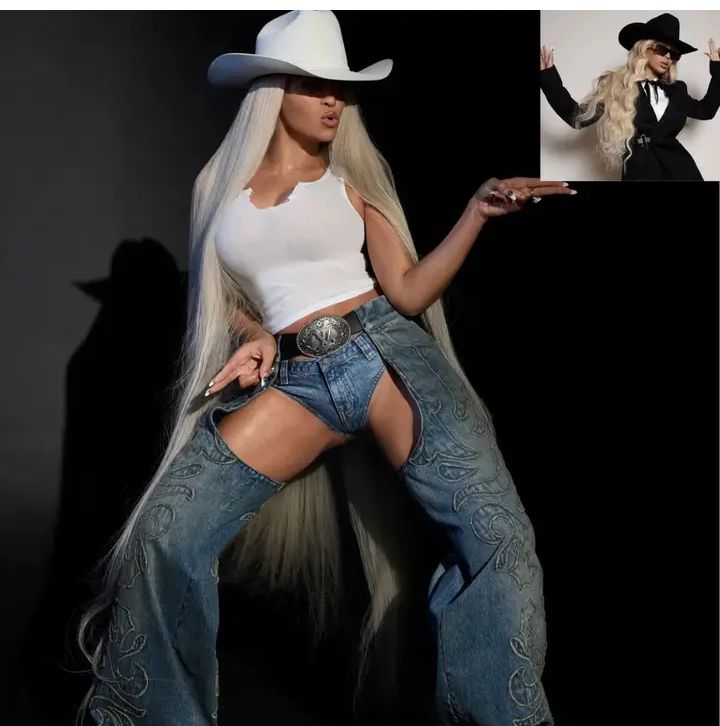CELEBRITY
Beyoncé’s “Jolene” and country music’s scorned woman trope

A music scholar explains why hell hath no fury like a country diva.
Kyndall Cunningham is a culture writer interested in reality TV, movies, pop music, Black media, and celebrity culture. Previously, she wrote for the Daily Beast and contributed to several publications, including Vulture, W Magazine, and Bitch Media.
There’s a lot to parse through and digest on Beyoncé’s Cowboy Carter. The 27-track album is a rich, sprawling tribute to various eras and genres of Southern music, from outlaw country to Louisiana’s zydeco to 1960s rock ‘n’ roll — all of which have contributed to our collective understanding of country music.
She carries out this hefty task with the help of some lesser-known country artists and some bona fide legends. One of those heavy hitters is none other than Dolly Parton, who makes several appearances, including in a playful audio message on Cowboy Carter’s ninth track.
“You know that hussy with the good hair you sing about?” Parton asks Beyoncé, referencing her famous “Becky with the good hair” lyric on her 2016 song “Sorry.” “Reminded me of someone I knew back when, except she has flamin’ locks of auburn hair. Bless her heart. Just a hair of a different color, but it hurts just the same.”
The next track is Beyoncé’s highly anticipated rendition of Parton’s 1973 smash hit “Jolene.” Beyoncé is one of many artists across generational and cultural lines to put their own twist on Parton’s heralded ditty. Her remake turns what was originally Parton’s plea to a red-haired bank clerk to stay away from her husband into a more aggressive (and funny) threat. “You don’t want this smoke, so shoot your shot with someone else,” she sings before reminding Jolene that she’s “still a banjee country bitch from Louisiana.” She also calls Jolene a “bird.”
Beyoncé is no stranger to singing about infidelity, both as a former member of Destiny’s Child and as a solo artist. But her confessional 2016 album Lemonade was the first time she had not-so-subtly referenced cheating in her marriage with Jay-Z — at least in a way listeners could clock. On the album’s more memorable tracks like “Don’t Hurt Yourself” and “Sorry,” the singer embraces a kind of cathartic and arguably feminist rage before controversially offering her partner forgiveness.
In that regard, it’s maybe not surprising that she reimagines “Jolene” as a feistier song, while remaining predictably confident in her own womanhood. Beyoncé’s “Jolene” remake also feels in line with a history of outspoken, scorned women in country music, addressing their men’s misdeeds in a fierce, violent, and often vengeful manner: from Loretta Lynn’s “Fist City” to Carrie Underwood’s “Before He Cheats” to Taylor Swift’s collaboration with Haim “No Body, No Crime.” (It’s the premise of many Miranda Lambert songs too.) Sometimes, the victim is the guy. Sometimes, it’s his “pretty little souped-up four-wheel drive.”
To get to the bottom of this trend, I spoke to country music scholar Jocelyn Neal, a professor at University of North Carolina at Chapel Hill, about the role of infidelity in country music and what it says about the misunderstood and complex role of gender within the genre.






